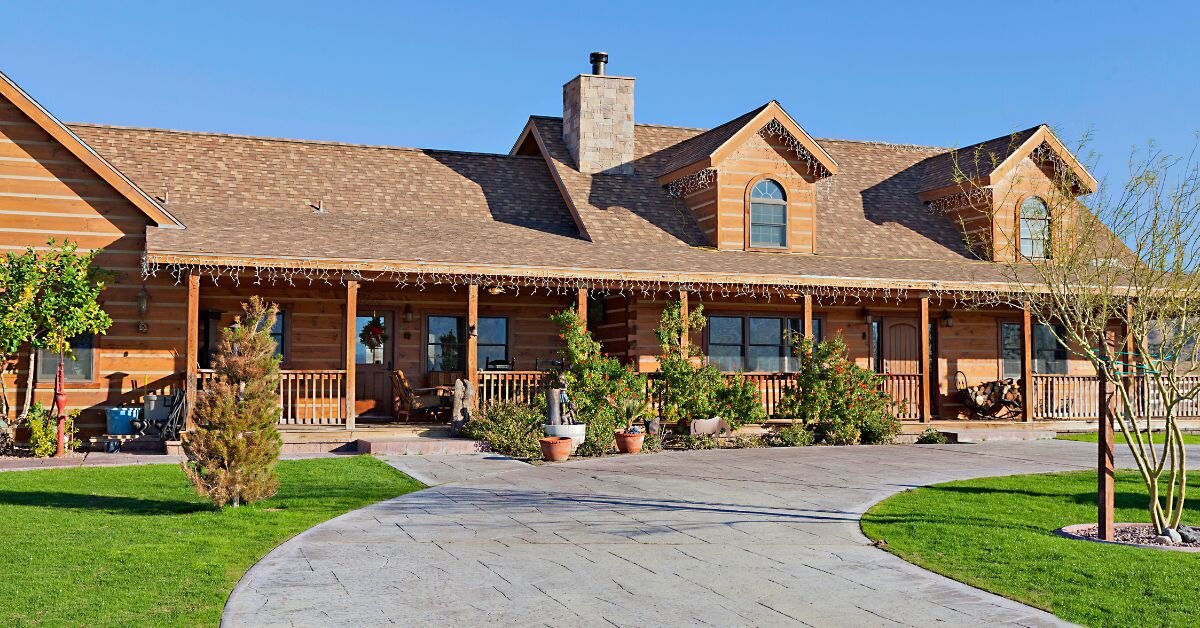
Selling a home in the countryside ain’t the same as selling in the city. It’s a whole different game. The process takes longer, the buyer pool is smaller, and honestly, it takes a bit more effort. But that don’t mean you can’t sell a rural home fast and for a fair price. It just means you gotta know what you’re doin’. The California rural real estate market has been shifting. More people wanna escape the city, but at the same time, not everyone’s lookin’ for country life. If you wanna make sure your home gets attention, you need to understand how to sell a rural home and property in remote areas the right way. Let’s break it all down.
Understanding the California Rural Real Estate Market
The California rural real estate market is different from the urban housing market. Homes take longer to sell, prices fluctuate, and demand changes depending on the economy and lifestyle trends. Some buyers want land for farming, others just want peace and quiet. Understanding these factors will help you plan a successful sale.
How Market Trends Affect Rural Home Sales
Market conditions shift all the time. Lately, more buyers have been looking for rural homes, especially since remote work has made country living more appealing. But that doesn’t mean every rural home sells fast. Economic changes, interest rates, and even wildfire risks impact how fast homes move. If fewer people are buying, you may have to adjust your price or marketing strategy.
The Challenges of Selling a Rural Home
Rural homes don’t always attract a wide range of buyers. Some lenders are hesitant to finance properties far from cities. Fewer comparable home sales make pricing tricky. And, because rural homes often come with land, not every buyer wants the responsibility of maintaining acreage. Knowing these challenges upfront will help you prepare for a smoother selling process.
Pricing Strategies for Selling Property in Remote Areas

Pricing a rural home isn’t as straightforward as pricing a city house. Selling property in remote areas means considering land value, house condition, and demand in your area. Set the price too high, and buyers might not even look. Too low? You leave money on the table. Finding that perfect price takes a mix of research and strategy.
Using a Land and Home Appraisal to Set the Right Price
A land and home appraisal in rural areas is one of the smartest steps to take before listing. Since rural properties vary a lot in size, features, and location, an appraisal helps set a fair price. It considers not just the house but also the land, any barns or outbuildings, and even water access. With a proper valuation, you avoid overpricing or underpricing.
Factoring in Location and Accessibility
Where your property sits makes a big difference. A rural home close to a main highway or a town might fetch a higher price than one deep in the woods with difficult road access. Buyers also look at things like internet availability, water sources, and power supply. If your home has off-grid features, solar power, or a well, those can add value, but they must be priced correctly.
Marketing Rural Homes for Sale: Reaching the Right Buyers

Marketing matters—a lot. Rural homes for sale don’t get the same foot traffic as city homes, so you gotta put in extra effort. A good marketing plan will make sure the right buyers see your home and feel excited about it. The more exposure, the better your chances of selling faster.
Using Online Listings and Social Media
Most buyers start their home search online. That means your listing needs to be everywhere—Zillow, Realtor.com, LandWatch, and even Facebook Marketplace. High-quality photos and a virtual tour help too. If people can’t drive out to see the house right away, a good online presentation makes a big difference.
Highlighting Unique Features of Rural Homes
Country homes have something special that city homes don’t—land, peace, and space. Highlight what makes your property stand out. Got a pond? A big barn? Solar power? Let buyers know. The more details you provide, the better chance you have of attracting the right people.
Finding Buyers for Country Homes
Not everyone’s dreamin’ of country life, but the ones who are? You gotta find ’em. Finding buyers for country homes is about knowing who’s actually interested.
There’s a few types of buyers looking for rural homes. Retirees want quiet and space. Families want a safe place for kids. Investors? They want land they can rent or develop. And then there’s outdoorsy folks, who just want land for huntin’, fishin’, or whatever else.
How do you attract ’em? Make sure your listing speaks to their needs. If you got land, talk about what it’s good for. If you got a big house, mention family-friendly features. Market to the right people, and they’ll come knockin’.
Navigating California Real Estate Regulations

Selling a home isn’t just about listing it and waiting for offers. You gotta follow the law. California real estate regulations are strict, especially for rural properties. From zoning laws to disclosure rules, knowing what’s required can save you from legal headaches and delays.
Understanding Zoning and Land Use Laws
Zoning laws control what can and can’t be done with the land. Some rural properties are zoned for agriculture, while others allow residential or commercial use. If you’re selling, you need to know how your property is classified. Buyers will wanna know too, so having the right info upfront will make the sale smoother.
Water Rights and Septic System Compliance
Water is a big deal in rural areas. Some homes rely on wells, others have access to shared water sources. California law requires sellers to disclose all water-related details. Septic systems also need to be inspected before selling. If you don’t take care of these things early, it could delay or even cancel a sale.
Best Time to Sell a House in California
Timing plays a big role when selling a home. The best time to sell a house in California depends on factors like market demand, weather, and buyer interest. A well-timed sale can help you attract more offers and sell faster. If you’re looking to sell a rural home, knowing when buyers are active will make all the difference.
Spring and Summer: The Peak Selling Seasons
Spring and summer are hands down the best time to sell. Buyers are more active, the weather is nice, and homes look better with green trees and blooming flowers. Schools are out, and families prefer to move before the new school year starts. If you want top dollar, listing in these months is your best bet.
Fall and Winter: Selling in a Slower Market
Fall and winter are slower, but that doesn’t mean you can’t sell. Serious buyers are still out there, just fewer of ‘em. The competition is lower, so if you price it right, you can still close a deal. Plus, some buyers wanna move before the holidays or before the next tax season.
If you wanna sell a rural home fast, spring or summer is your best bet. But if you price it right, you can sell anytime.
The Bottom Line
Selling in the city? Easy. Selling in the country? Not so much. You gotta know the California rural real estate market, price it smart, and market it right. That’s how you find buyers. That’s how you close deals. Understanding California real estate regulations and getting a land and home appraisal in rural areas will help. Timing the sale right can make a big difference too.
And if all this sounds like too much work? We Buy Houses County Wide makes it easy. If you need to sell quick and don’t wanna deal with the hassle, we can help. Simple as that.
FAQs
1. How long does it take to sell a rural home in California?
Selling time varies. If the home is priced right and well-marketed, it may sell in a few months. If overpriced or poorly advertised, it could take much longer.
2. What makes selling a rural home difficult?
Fewer buyers, limited financing options, and longer selling times make it challenging. Some lenders hesitate to approve rural home loans, and remote locations can deter potential buyers. Proper marketing helps.
3. Should I get an appraisal before selling my rural home?
Yes, a land and home appraisal in rural areas helps determine an accurate price by evaluating land, structures, and utilities. It prevents overpricing or underpricing, making your sale smoother and faster.
4. Do I need a real estate agent to sell a rural home?
Not necessarily, but a rural property expert can attract the right buyers. If selling alone, ensure strong marketing and proper pricing. Some buyers prefer working through agents for financing options.
5. When is the best time to sell a rural home?
Spring and summer bring more buyers, making sales quicker. Warmer weather showcases property beauty, while families prefer moving before school starts. Fall and winter sales are possible but usually slower.

